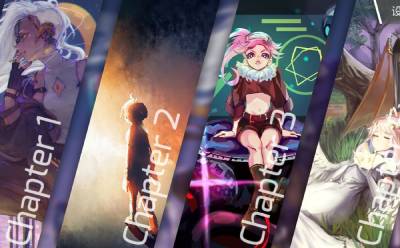Phiros Project Mode is a specific game mode designed to provide a unique gaming experience. Phigros is a rhythm music game developed by Geyou. Its project mode provides players with a platform to deeply explore and challenge the rhythm and difficulty of the game. The following is a brief introduction to the Phiros subject mode for your reference. For players who are not yet familiar with this mode, it is recommended to read the following content carefully to better understand and experience this featured game mode.

Introduction to Phiros project model
1. Introduction to subject model
The assessment mode is similar to the rank assessment in music games. The specific form is to play three pieces in a row. Pause is allowed but restarting is not allowed during the period. It needs to be completed at one time. Participants also have the right to opt out and start the challenge again. The special feature of this mode is that it allows for self-selected tracks.
After completing each track, there will be a 5-second break during which participants can view information about the next track. It’s worth noting that the score for the track you just completed will not be displayed during the break. Therefore, if you need to estimate the score to determine whether to continue the challenge, it is recommended to quickly check the score information in the upper right corner of the interface after completing a song.
2. Selection of topic model
In the project mode, users have the right to carefully select three different beats (excluding old beats) from the unlocked beats to experience. This mechanism allows users to choose different difficulty levels of the same song to challenge based on personal preferences, although under normal circumstances, users may not choose this method.
After selecting a beat, if the user needs to change their selection, they can use the "UNDO" function above the difficulty selection button to cancel the selection and replace it with other beats that they hope to challenge.
It is worth emphasizing that the order of selecting beats will directly determine the order of play. This setting is designed to provide users with more flexible strategic choices. Users can reasonably arrange the order of charts based on their own skill level and game experience to optimize the game experience and avoid affecting the overall performance due to excessive difficulty or too many mistakes.
3. Judgment and Scores
In the project mode, the judgment criteria will be significantly tightened, which will undoubtedly bring significant challenges to the resident players of phigros. Specifically, the fault tolerance interval of PERFECT judgment is reduced from ±80ms in normal mode to ±40ms, and the fault tolerance interval of GOOD is correspondingly shortened from ±160ms to ±80ms. This data comes from Mengniang Encyclopedia, and shows that the difficulty of the subject mode has increased exponentially.
In the project mode, combo points will no longer be included in the score, and the player's performance will directly depend on their accuracy, which undoubtedly provides players with a more pure and objective evaluation method. The same as the normal mode, if the player makes a GOOD decision, he will only get 65% of the score for the note. Likewise, if BAD or MISS is played, the player will not receive any points.
4. Settlement
During the settlement stage, you will be able to know exactly the amount of GOOD you have accumulated, and at the same time, the system will also display the EARLY/LATE statistics in a humanized way. During the settlement process, the system will automatically add up the playing scores of the three charts to arrive at a total score of up to 3 million points. This total does not include combo scores, so it is a direct reflection of the average accuracy of this playthrough. Next to the overall score, you will see a rating, but please note that this rating has no specific function or meaning.
5. Brand
After completing the settlement process, the system will generate a small card composed of a combination of numbers and a specific background color based on your score and chart difficulty. You can claim this card by clicking on the "√" icon, and it will replace the card you are currently holding. If you think that this result does not meet your expected standards, you have the right to choose to click the "×" mark to abandon the card and retain the card you obtained before. This card will be displayed to the right of the player's avatar, above the rks logo.
The number is used to indicate the range of the sum of the difficulty of these three charts, the lowest is 3 (that is, the difficulty of each chart is 1), and the highest is 48 (that is, the difficulty of each chart is 16). For the presentation of grades, there are five different background colors to distinguish:
- If the total score reaches 3 million points (the average score per chart is 1 million points), the background color will be colored.
- If the total score exceeds 2.94 million points (the average score per chart is more than 980,000 points), the background color will be yellow.
- If the total score exceeds 2.85 million points (the average score per chart is more than 950,000 points), the background color will be red.
- If the total score exceeds 2.7 million points (the average score per chart is more than 900,000), the background color will be blue.
- If the total score exceeds 2.46 million points (the average score per chart is more than 820,000 points), the background color will be green.
Players whose total score does not reach 2.46 million points will not receive any brand and will jump directly to the song selection page after settlement. The above data comes from self-test, and relevant screenshots have been attached to the reply.
Players can choose to challenge brands of different difficulty according to their own habits and strength. For players who pursue accuracy, they can try to hit the gold medal; for players with average skill levels, they can challenge higher-numbered brands on the basis of ensuring a red bottom; for players who pursue extreme theory, naturally aim for colored brands; For players who try to challenge beyond the next level, it is recommended to proceed with caution and avoid overly challenging targets outside their own strength.
It is worth noting that the brand can reflect the player's strength to a certain extent, but unlike rks, the acquisition of the brand is more affected by the player's playing habits and personal differences.




